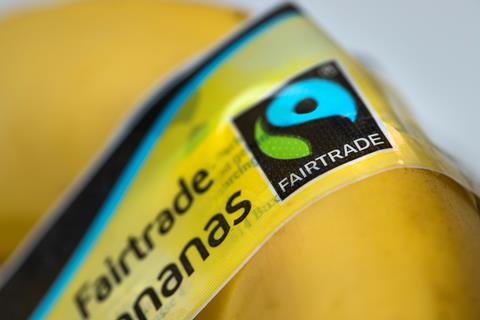Organisation evolves standards in multi-year initiative to help growers tackle challenges including climate change, social inequality and rising costs

Fairtrade International has announced that it is evolving its standards to make them more effective, while remaining practical to implement and firmly grounded in its core principles and values.
It comes in response to the myriad of complex challenges facing growers and businesses, from climate change and widening social inequalities to rising costs and an increasingly complex regulatory environment.
The multi-year initiative is described as a ”strategic priority” for Fairtrade and will support the organisation’s goal to increase the value it provides, and also drive meaningful impact at scale.
“We know the world is shifting, we see the pressure farmers and companies are under, and we will be there supporting them with evolved standards that meet their practical needs as well as the requirements for a trade system that is fair and just,” said Marike Runneboom de Peña, interim CEO of Fairtrade International.
The revision includes all Fairtrade generic standards: Small-scale Producer Organisations – SPO, Hired Labour Organisations – HLO, and Trader, as well as all the product standards related to agricultural production.
Fairtrade’s new, evolved standards will be designed to help farmers, workers and businesses address their most pressing challenges.
According to Fairtrade, farmers and workers will be able to prioritise their actions to respond to the social, environmental, and economic challenges they face locally and gain recognition for other relevant certifications they hold reducing duplication and effort.
Companies and licensees, meanwhile, will be able to more easily demonstrate their commitments and results in building resilient supply chains and the actions they are taking to meet relevant human rights and environmental regulations.
Fairtrade said it is innovating to make its standards fit for purpose by embedding human rights and environmental practices to ensure producers and companies can demonstrate actions they are taking to improve farmers’ and workers’ livelihoods, ensure fair working conditions, safeguard the environment, and build resilient supply chains; adopting a risk-based approach to social and environmental topics drawing on Fairtrade’s comprehensive Risk Map to support producers to focus on what matters;. supporting producers and traders to build stronger systems to implement and manage effective action, increase transparency, and demonstrate measurable results; and making standards more user-friendly by reducing the number of standards, streamlining requirements, and making it clearer how requirements support meaningful action.
”The evolution of Fairtrade’s Standards is already underway,” it stated. ”The process to shape the evolved standards will be conducted in collaboration with Fairtrade’s three regional producer networks, 25 national Fairtrade organisations and marketing organisations, and Flocert, our third-party certifier.”
Fairtrade said it will engage key stakeholders throughout the process, including a full public consultation in 2026.
”Fairtrade strongly encourages famers, workers, partners and all other stakeholders to take part because participation will lead to more effective solutions,” it noted.
”Following the consultation with our stakeholders, Fairtrade expects to publish the new, evolved standards in 2027, and that certification against them will begin by 2028.”



